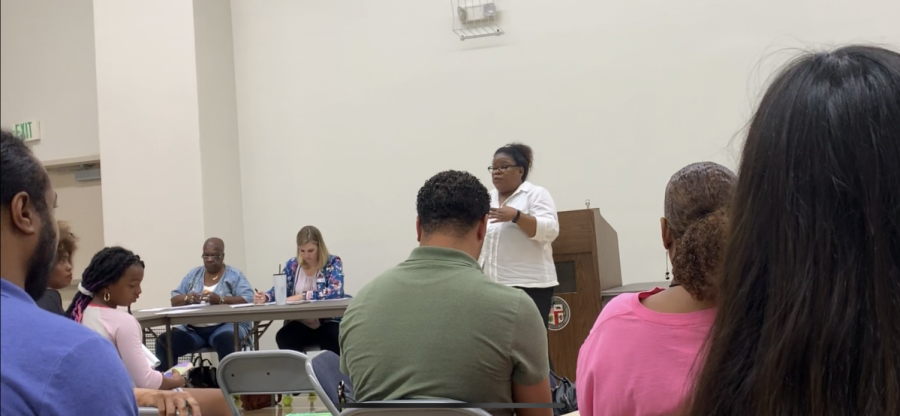Of 14 neighborhood councils throughout Los Angeles, just one has a cannabis committee.
Some folks who are part of the South LA Alliance of Neighborhood Councils –– which is made up of 14 neighborhood councils –– say that should change because the 2016 legalization of recreational marijuana in California affects local residents, who should have a say in what happens.
But the still-lingering stigma of cannabis has led some committees to shy away from the idea, according to Kathy Guyton, corresponding secretary of the Empowerment Congress West Area Neighborhood Development Council, the only neighborhood council with a cannabis committee.
Businesses wanting a cannabis license must “offer to appear before the closest neighborhood council to answer questions about their application,” according to the City of Los Angeles Department of Cannabis Regulation. But the companies aren’t required to provide the neighborhood with community benefits, according to Guyton. That could change if neighborhood councils get more involved by providing some oversight.
“When we first started talking about cannabis we got a little push back from the community,” Guyton said. “Cannabis isn’t just smoke, it’s manufacturing, it’s the lab test. All of this will bring jobs and money into our neighborhoods.”
According to the ECWA website the Cannabis Regulation Committee serves to “give a voice and provide a platform for local stakeholders to participate in the selection of cannabis businesses in the community.
Everyday people should take more control of the process, said Kika Keith, a city resident who said she agreed with the idea of cannabis committees.
Once community members are “educated about the health benefits of cannabis, as well as the laws and education, then, all of a sudden, we create a really big position of power in this billion-dollar,” said Keith.
The City of Los Angeles Department of Cannabis Regulations holds “on-demand” meetings of the Cannabis Regulation Commission, but out of the 32 meetings listed, 20 of those are listed as canceled because no voting issues were present at the time.








